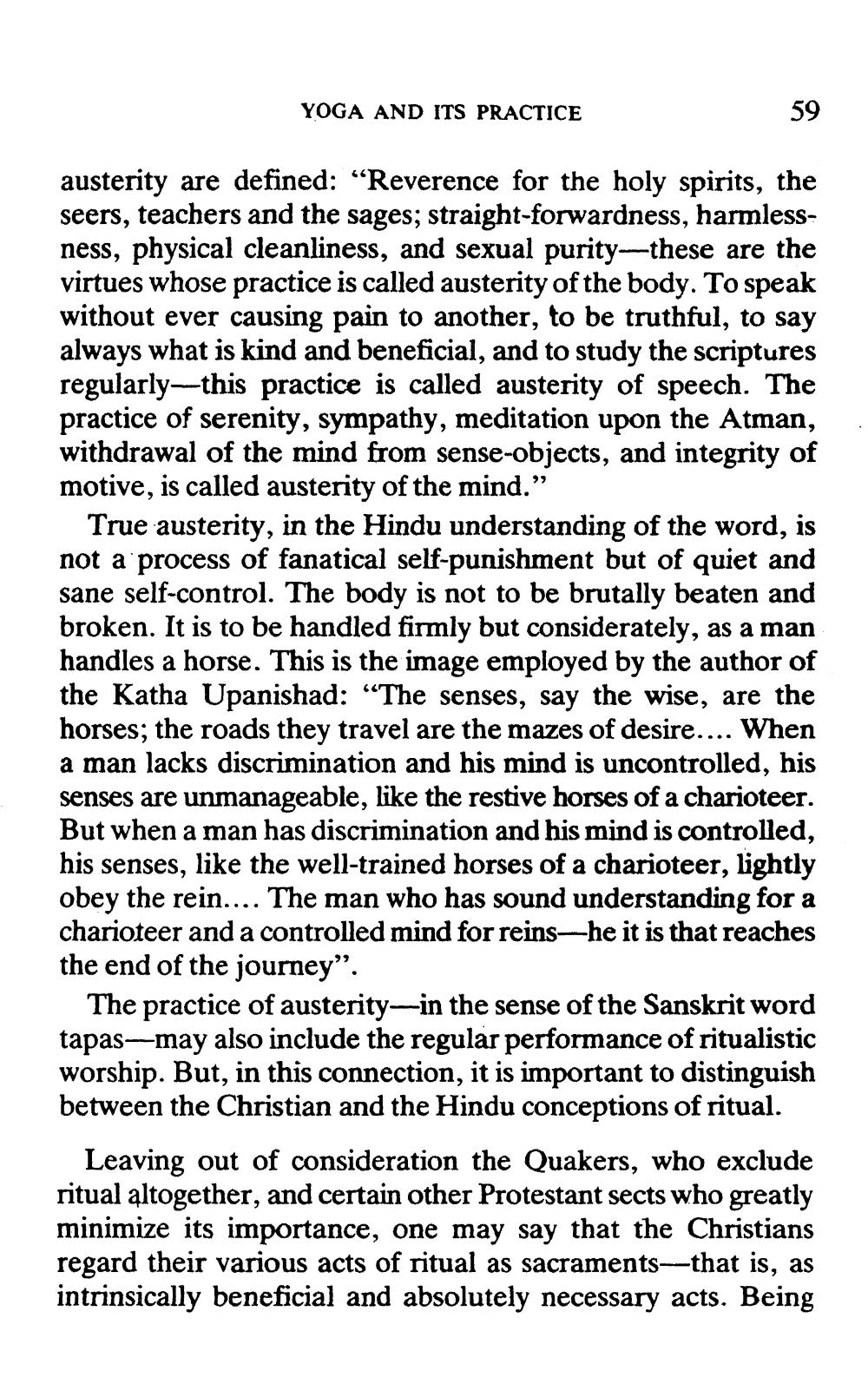________________
YOGA AND ITS PRACTICE
austerity are defined: "Reverence for the holy spirits, the seers, teachers and the sages; straight-forwardness, harmlessness, physical cleanliness, and sexual purity--these are the virtues whose practice is called austerity of the body. To speak without ever causing pain to another, to be truthful, to say always what is kind and beneficial, and to study the scriptures regularly--this practice is called austerity of speech. The practice of serenity, sympathy, meditation upon the Atman, withdrawal of the mind from sense-objects, and integrity of motive, is called austerity of the mind."
True austerity, in the Hindu understanding of the word, is not a process of fanatical self-punishment but of quiet and sane self-control. The body is not to be brutally beaten and broken. It is to be handled firmly but considerately, as a man handles a horse. This is the image employed by the author of the Katha Upanishad: “The senses, say the wise, are the horses; the roads they travel are the mazes of desire.... When a man lacks discrimination and his mind is uncontrolled, his senses are unmanageable, like the restive horses of a charioteer. But when a man has discrimination and his mind is controlled, his senses, like the well-trained horses of a charioteer, lightly obey the rein.... The man who has sound understanding for a charioteer and a controlled mind for reins-he it is that reaches the end of the journey”.
The practice of austerity--in the sense of the Sanskrit word tapas-may also include the regular performance of ritualistic worship. But, in this connection, it is important to distinguish between the Christian and the Hindu conceptions of ritual.
Leaving out of consideration the Quakers, who exclude ritual altogether, and certain other Protestant sects who greatly minimize its importance, one may say that the Christians regard their various acts of ritual as sacraments-that is, as intrinsically beneficial and absolutely necessary acts. Being




